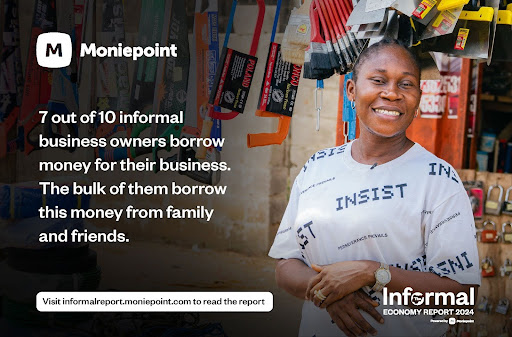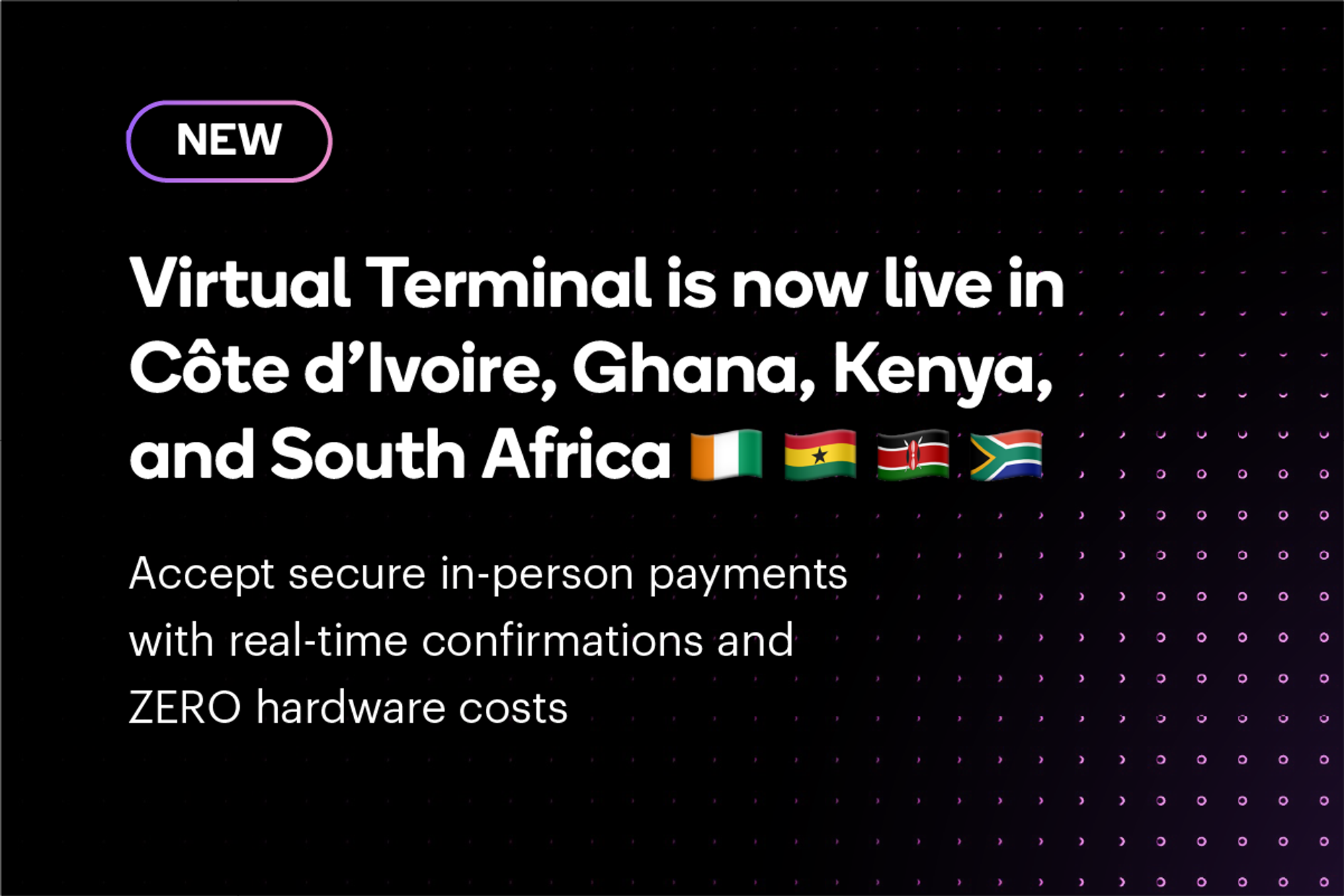

Happy pre-Friday ☀️
And congratulations to Flutterwave, Piggyvest, Kuda, PalmPay, Yoco and MTN for making CNBC’s list of the Top 250 Fintech Companies! These fintechs join payments giants like Mastercard and Klarna on the global stage.
The list might be unranked, but you guys are always top of mind for us! 😉
d.light raises $176 million funding to light up East Africa
d.light, a company that sells solar-powered solutions to off-grid African areas has raised $176 million in debt funding, bringing its total debt raise since 2020 to $718 million.
The company says it will use the additional sum to expand to off-grid households in Kenya, Tanzania, and Uganda.
A delightful growth: d.light’s business focus is in African countries where it has captured more than 100 million customers across Kenya, Tanzania, Uganda, and Nigeria. It has sold over 25 million solar products in Africa. In H1 2023, the company grew its revenue by 41% and business analytics platform, Growjo, estimated d.light’s gross revenue as $301.2 million in the same year.
It services a needy market as more than 600 million rural Africans lack electricity, and many more are looking for alternative energy sources to power their homes and businesses.
How it’s powering Africa up: To address the issue of electricity access and low income, d.light chooses to operate a pay-as-you-go model for its solar power solutions. Households and businesses in off-grid areas pay small amounts of money to access solar-powered electricity. This makes scale easier for d.light. Additionally, the company sells its more expensive products like solar lanterns and cooking stoves to higher-income households in the area.
The balanced market targeting, coupled with the first-mover advantage it had when it started in 2007 in the solar market industry, makes the business enticing to investors. However, with the additional sum, CEO Nedjip Tozun said the money will be a major driver in the company’s bid to stay cashflow positive and remove pressure from raising debt in the future.
Read Moniepoint’s 2024 Informal Economy Report

7 out of 10 informal business owners borrow money for their business. Click here to find out more about Nigeria’s informal economy and credit.
Nigeria to tax banks’ $1.2 billion FX gains
When President Tinubu floated the naira and unified the multiple exchange rate markets last year, the naira weakened against the dollar. The move also handed Nigeria banks huge chunks of FX profits.
Banks cash in their cheques: In 2023, GTBank Nigeria’s 5th biggest bank by assets made ₦449.347 billion ($274 million) in profits from foreign exchange earnings. In its audited accounts for 2023, United Bank for Africa (UBA), a Nigerian bank valued at over ₦1 trillion, earned ₦112.1 billion ($685 million) from foreign exchange income. Similarly, Zenith Bank, another Nigerian bank, gained ₦228.9 billion ($139 million) from FX in 2023. Cumulatively, 9 of the 10 biggest banks in Nigeria made ₦2 trillion.
The CBN, however, caught on to this and stopped commercial banks from using those gains to pay dividends or meet operating expenses.
It’s raining taxes: President Tinubu is finally finding a way to put those gains to good use. Yesterday, as part of an amendment to the Finance Act, the president wrote to lawmakers to allow a one-time 50% tax on the FX gains. The monies will be used to fund capital infrastructure development, education, healthcare, and welfare projects.
Alongside the new tax, the President made a request to lawmakers to increase government spending by as much as ₦6.2 trillion naira ($3.8 billion).
At 10%, Nigeria has one of the lowest tax-to-GDP ratios in the world. The proposed tax will help Nigeria’s tax collection agency Federal Inland Revenue Service, move closer towards achieving its goal of increasing tax revenue by 57%. The tax will also serve as added funds for the president’s Renewed Hope Agenda which hopes to lift 100 million people out of poverty.
Join Fincra at API Conference on July 20, 2024

Calling all devs!! This is your chance to dive deep into Fincra’s extensive suite of payment APIs and accompanying SDKs. Come and see how you can build your next big idea with easy-to-integrate APIs. Reserve your spot here!
LULA rides to the rescue as Zeelo exits South Africa
Big news for South African commuters! LULA, the ride-sharing service for office workers, has acquired the local arm of Zeelo, a US-based company specialising in staff bus-sharing. This move will strengthen LULA’s presence in the South African market, offering more options for businesses looking to ease employee commutes.
Zeelo shifts focus as LULA takes the wheel: While details of the cash-only deal remain undisclosed, Zeelo will be exiting South Africa to concentrate on its core markets in the US, UK, and Ireland. The company leaves behind a strong legacy, having facilitated over 2 million rides annually for South African commuters.
LULA is ready to leverage Zeelo’s existing network of 18,000 riders to expand its reach across South Africa. This acquisition comes at a crucial time, as transportation remains the biggest work-related expense for South Africans with some spending as high as R2,280 ($120) per month. With LULA and similar platforms like Uber for Business and MoveInSynch, companies can offer cost-effective solutions for employee commutes.
LULA’s winning formula: Founded in 2018, LULA boasts a growing network with over 700,000 rides completed for more than 380 companies across five South African cities. LULA partners with a network of over 1,000 drivers and shuttle operators, offering a commission-based model (20-40%) instead of owning its own fleet. This acquisition is expected to make LULA cash-flow positive, allowing the company to focus on “smart scaling” according to CEO Velani Mboweni.
Smoother rides ahead: While Zeelo’s departure might raise eyebrows, LULA’s commitment to the South African market is a positive sign for commuters. This acquisition is poised to create a stronger competitor in the corporate ride-sharing space, offering businesses more options to manage employee commutes effectively.
Paystack Virtual Terminal is now live in more countries

Paystack Virtual Terminalhelps businesses accept secure, in-person payments with real-time WhatsApp confirmations and ZERO hardware costs. Enjoy multiple in-person payment channels, easy end-of-day reconciliation, and more. Learn more on the Paystack blog →
Startbutton wants to be your expansion partner
If you get a dollar every time someone says African startups need to expand globally so they can earn FX, you’ll probably be reading this as a millionaire.
For these startups, entering new markets presents a complex challenge. They’ll have to establish a local presence and navigate regulations—expensive and time-consuming activities.
There’s a startup solving every problem: But what if these businesses could sell their products, accept payments and pay taxes without incorporating a new entity in those markets? Well, that is the exact pitch for businesses like Startbutton.
The Norrsken-backed startup is offering businesses the ease of offering their services in new markets. Startbutton helps startups sell products in foreign markets, take payments, and handle tax obligations while helping with liabilities like chargebacks and refunds for a small fee.
“When I started working at Paystack, the problem became more apparent. We couldn’t work with foreign companies without local entities,” Malick Bolakale, CEO at Startbutton said to us at TechCabal. “It was clear we had a product that pan-African businesses need and could scale globally.”
How it’s making money: Startbutton claims it has processed over $3 million since its inception in 2023, earning a 1% transaction fee on every transaction and a 0.5%–1% fee.
The startup which is currently in Nigeria, Ghana, Kenya, Rwanda, and South Africa now plans to expand into Tanzania, Egypt, and parts of Asia as part of its global expansion plans.
Master growth at GrowthCon

GrowthCon is back bigger & better! Come explore proven strategies, tactics & success stories of growth & innovation in Africa via curated masterclasses, workshops & case studies led by top growth leaders. This year also includes the Executive Track, exclusive to business leaders & senior execs. Get your tickets now!
- The Africa Prize for Engineering Innovation is open to African innovators creating engineering solutions to local challenges. Innovators from sub-Saharan Africa should pitch viable engineering products or services that will have social or environmental benefits to the continent. Apply for the chance to get up to $25,000 in funding.
- The Future of Capitalism Tech Startup Competition is offering $1 million to one lucky tech startup that can transform how businesses today operate. If your tech can save costs, boost efficiency, increase productivity or customer satisfaction, then apply by September 30 for a chance to win.
- Applications are now open for the 5th cohort of Microsoft’s GrowthX Accelerator Programme. AI Startups can apply to join the eight-week incubator that will provide $25,000 worth of azure credits, mentorship from some of the biggest tech corporations and investor readiness lessons. Apply by September 2, 2024.
You should definitely read these 👇🏾
Written by: Emmanuel Nwosu & Faith Omoniyi
Edited by: Muyiwa Olowogboyega & Timi Odueso
Want more of TechCabal? Sign up for our insightful newsletters on the business and economy of tech in Africa.
- The Next Wave: futuristic analysis of the business of tech in Africa.
- Entering Tech: tech career insights and opportunities in your inbox every Wednesday at 3 PM WAT.
- TC Scoops: breaking news from TechCabal
P:S If you’re often missing TC Daily in your inbox, check your Promotions folder and move any edition of TC Daily from “Promotions” to your “Main” or “Primary” folder and TC Daily will always come to you.
























